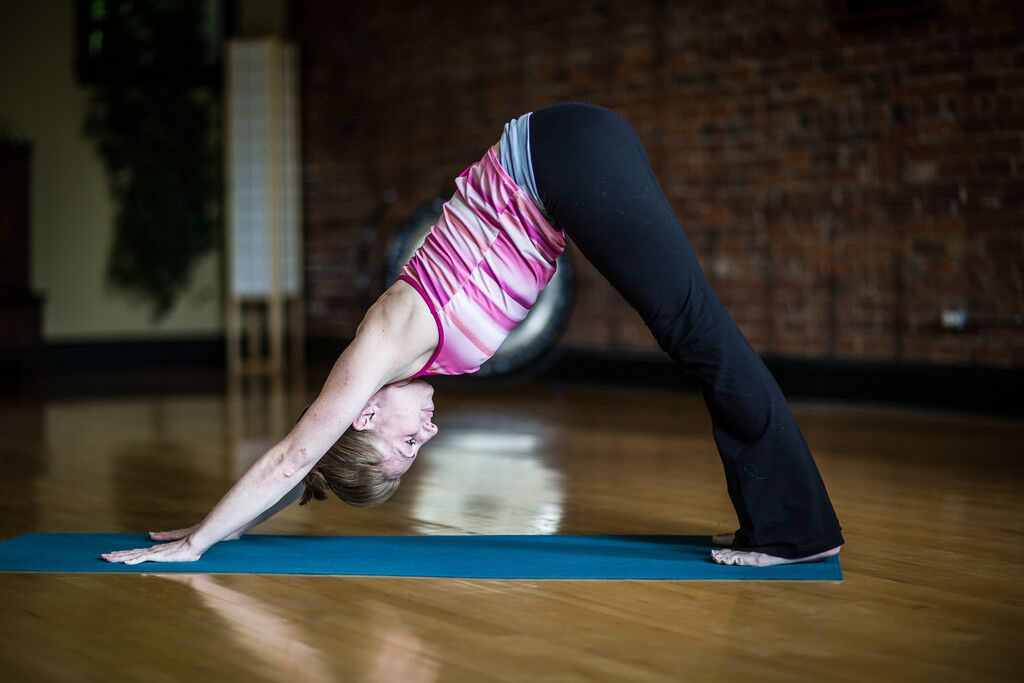For as long as I can remember, I felt uncomfortable in my own skin. If I was walking down the street and made eye contact with you as we passed and you didn’t smile at me, I would think, “What did I do wrong?” I couldn’t tolerate or manage my thoughts and feelings, so I used drugs to change the way I felt.
I started in middle school with the gateway drugs alcohol and tobacco, added marijuana in high school, then discovered and quickly became addicted to heroin in college. I took two years off to treat my addiction, and with the help of methadone, I graduated from college. In the following years, though, after numerous failed attempts at treatment and sobriety, I found myself addicted to methamphetamine. I started dealing small amounts to support my own addiction. Then, in 2005, I sent some meth through the mail to a friend. The package was intercepted and I was indicted on a federal felony conspiracy drug charge that carried a potential 10-year prison sentence.
Now, looking back, I feel gratitude and compassion for my once-broken self. I see now that the lowest point of my journey was the turning point that made my growth and recovery possible. Out of that brokenness and pain, I have created a fulfilling and joyous life that exceeds all the expectations I dared to hope for.
But at the time, I felt broken and defeated and hopeless. Faced with the severe consequences of prison, anyone without the disease of addiction would have been able to stop using drugs. I couldn’t. I continued to use up until the day I turned myself in to serve a year in prison.
During that year, despite the consequences of my drug use, I was still trapped in the irrational mindset of addiction. I told myself that my drug use wasn’t the problem; I had been set up. It was a fluke. I would do my time and use the experience to write a best-selling memoir.
 Then I got out and relapsed within months. When my continuing use was discovered, I was taken into custody, and I found myself back behind bars. As I sat in jail, waiting to see if I would be sent back to prison, I finally broke. I could no longer sustain the rationalization and denial. This was my life. This was a pattern. I begged for help, and thanks to my public defender, the judge postponed my revocation hearing and I was allowed to go to treatment. That was 10 years ago, and I’ve been in recovery ever since.
Then I got out and relapsed within months. When my continuing use was discovered, I was taken into custody, and I found myself back behind bars. As I sat in jail, waiting to see if I would be sent back to prison, I finally broke. I could no longer sustain the rationalization and denial. This was my life. This was a pattern. I begged for help, and thanks to my public defender, the judge postponed my revocation hearing and I was allowed to go to treatment. That was 10 years ago, and I’ve been in recovery ever since.
After completing treatment, I returned to court for my revocation hearing to see if I would be sent back to prison. Unfortunately, the court was not interested in my recovery. The judge told me that I hadn’t learned my lesson and he was going to teach it to me. He sent me back to prison for 18 months, in a maximum-security facility, for relapsing.
The second time in prison was different. I was different. I had just completed treatment and for the first time in my life, I was ready and willing to stay sober and do whatever it took to build a life in recovery. The injustice of being sent back to prison for relapsing—for having the disease of addiction—broke me in a different way. I decided I needed to change things, and to do that I would become a lawyer. So I did my time and studied for the Law School Admission Test (LSAT).
Fresh out of prison for the second time, it took me months to find a job at a bagel shop making $7.25 an hour. I was ashamed, resentful, and angry. With the help of an EMDR therapist and three 12-step meetings a week, I threw myself into recovery and swallowed my pride.
I kept working at the bagel shop and took the LSAT. Thanks in part to 15 months in prison studying, I got a good score. But when I applied to local law schools, I was rejected by them all. Discouraged but determined, I made appointments with the admissions directors and asked them if I had any chance of getting in. They all said yes, but they needed me to have a little more time out of prison with continued sobriety before they were willing to take that risk. (Understandable, given the circumstances.)
I started working at a small law firm as a legal assistant, reapplied to law school, and this time I got in. Three of the schools even offered me partial scholarships! I started school in 2011.
During my undergraduate years, college had been a backdrop for my addiction. This time was different. I loved law school. I soaked up knowledge and cultivated authentic, meaningful relationships with everyone I could: fellow students, professors, senators, representatives, judges, deans, you name it.
Today I am open about my past. I feel a duty—which I gladly accept—to share my experience to help others. But in law school I was still ashamed of my story, and I hid it as best I could. The administration knew about it because I had to disclose everything on my application, but I didn’t share it with anyone else. I lived in constant fear that my past would become known and I would be exposed.
That moment finally came in my last year of law school. I had chosen to do an internship with a judge, which required a background check. I remember a gut-wrenching, sinking feeling and thinking, “Well, here it is. It’s over.” I asked the judge if I could speak with him privately. We sat down in his chambers and I told him my story. By the time I finished I was crying. He looked me in the eye and said something I’ll never forget: “I spend my days sending people to prison, and you are the miracle that I hope for every day.” From that day forward he treated me as an equal, and he often asked for my insight on issues given my experience.
I went to law school to get the education and credentials to use my experience to change the criminal justice system. I also felt driven to help those whose substance use and mental health issues played a role in their involvement in that system. So, during law school I volunteered more than 800 hours of pro bono legal services as a certified student attorney. I helped women being released from state prison with their civil legal matters so they would have a better chance of successful reentry into their communities. I also provided pro bono criminal defense representation in a diversionary treatment court where individuals with mental illness received treatment rather than punishment. Talk about coming full circle!
By the end of law school, I felt restored and confident. I was living a life of purpose while achieving my goals.
I graduated magna cum laude and was one of six students out of a graduating class of more than 200 to be nominated by the faculty and administration for the “Student of Merit Award.” I took the bar exam and passed.
And then the other shoe dropped. I received a letter from the board of law examiners telling me I would not be licensed due to character and fitness issues.
The character and fitness investigation process was hell—talk about retraumatizing. I had submitted character affidavits and documentation of more than seven years of proven recovery and rehabilitation, but none of that mattered. (When I had gotten out of prison, one of the first calls I made was to the state bar association. I told them about my past and asked if I could legally become a lawyer. The association confirmed that my past did not disqualify me, I would just have to prove my rehabilitation after I graduated and passed the bar exam.) The licensing board required me to participate in adversarial hearings, undergo psychological testing and a chemical dependency evaluation, and provide urinalysis. Finally, after six months of jumping through hoops, the board gave me a license to practice law.
That was three years ago. Today I practice law and work on drug policy. It’s a dream come true and would be more than enough, right? It gets even better.
A few years out of prison, about the same time that I was applying to law schools for the second time, I realized something was still missing in my recovery. I had managed to build a stable, sober life, but I still felt uncomfortable in my own skin. I was still at the mercy of my inner fluctuations of mood and thought. I couldn’t always be at a 12-step meeting, and I needed tools—real physical techniques—to manage my stress.
 That’s when I created the yoga practice that eventually became Recovery Yoga Meetings. I put together a curriculum of yoga postures, mindfulness, and meditation that allowed me to translate intellectual recovery into a physical experience. I could live and breathe the spiritual principles of recovery with yoga. And by continuing to practice, I learned how to cultivate inner peace and resilience.
That’s when I created the yoga practice that eventually became Recovery Yoga Meetings. I put together a curriculum of yoga postures, mindfulness, and meditation that allowed me to translate intellectual recovery into a physical experience. I could live and breathe the spiritual principles of recovery with yoga. And by continuing to practice, I learned how to cultivate inner peace and resilience.
So, during my first year of law school, I decided to get certified to teach yoga so that I could teach Recovery Yoga Meetings. (Frankly I don’t know how anyone practices law without also practicing yoga.) Each class begins and ends with a confidential sharing session. In between, we practice a sequence of yoga postures and breathing that embodies the spiritual principles of recovery. We “work” the 12 steps physically. I’ve been teaching for more than seven years now, and hundreds of students have participated in yoga studios and treatment centers. I’ve also created a Recovery Yoga Teacher Training curriculum to train other yoga teachers how to effectively share yoga with people seeking recovery, particularly in health care settings.
So what was it you said is holding you back? Whatever your struggles, they have made you the woman you are today. Own your story and use it to make a better world.
Photos (from top to bottom) by Gaelle Marcel via Unsplash (cc), Annie Spratt via Unsplash, and Ashley Rick of St. Paul Photo Co.






